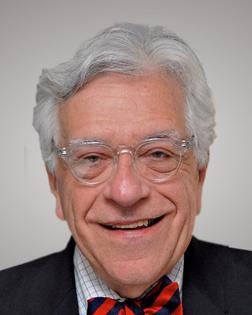The God Squad: The love holiday
Valentine’s Day, like Halloween, is a holiday with religious roots that has now become completely secular. It has become the big selling day for chocolates, flowers and such, but I still love it because it is the only holiday dedicated to the best thing we can feel. I am an incurable romantic and so I am attentive to the ways love is extolled and saddened by the way it is smothered in our culture.
Here are my love thoughts for this day of homage to St. Valentine…
Where did all the love songs go? I grew up in a time when nearly every popular song was about love. Now it is not that way. I think the last great love song I heard was the now 30-year-old ballad, "I Will Always Love You" by Whitney Houston, but it was great mostly because of her voice and not the lyrics where the main word is “I,” while in love the main word is you. That difficult but sacred reciprocity was captured by the poet Rilke, “For one human being to love another: that is perhaps the most difficult of our tasks; the ultimate, the last test and proof, the work for which all other work is but preparation.”
I am deeply saddened by the way pornography has separated love and sex. I am not a prude, but I am a believer that love and sex mutually reinforce each other, enrich each other and transform each other. When they are separated, sex becomes a mechanical act with no meaning and love becomes a vapid sentiment with no physical conjunction. True procreation is not merely the result of intercourse, it is the result of true lovemaking. The issue is intimacy. Without discovering true intimacy — physical and spiritual — we do not discover the best of us. Pablo Neruda knew the truth of this when he wrote, “I love you without knowing how, or when, or from where. I love you simply, without problems or pride: I love you in this way because I do not know any other way of loving but this, in which there is no I or you, so intimate that your hand upon my chest is my hand, so intimate that when I fall asleep your eyes close.”
I am frightened by the fact that many young people are not even considering getting married, even after they fall in love. For the last century, the marriage rate in America was about eight marriages per 1,000 people, though after World War II it peaked at 18 marriages per 1,000 people. In 2019, the marriage rate was down to 6 per 1,000 people, which is lowest marriage rate since the U.S. government began keeping marriage records for the country in 1867. Seventy years ago, 80 percent of American households were made up of married couples. In 2020, the proportion of households consisting of married couples fell to 49 percent. I believe that love not only leads to sex, but also to marriage, which to me is still a sacred estate and a noble vow. However, for an increasing number of young couples this linkage has been broken. George Eliot wrote words that sound exactly right to me, “What greater thing is there for two human souls, than to feel that they are joined for life — to strengthen each other in all labour, to rest on each other in all sorrow, to minister to each other in all pain, to be one with each other in silent unspeakable memories at the moment of the last parting?”
I think it may have been D.H. Lawrence who first set the terms for modern relationships when he wrote about modern marriage in a passage from an unpublished edition of his brilliant erotic novel, “Lady Chatterley’s Lover”: “So it must be: a voyage apart in the same direction. Grapple the two vessels together, lash them side by side, and the first storm will smash them to pieces. This is marriage, in the bad weather of modern civilization. But leave the two vessels apart, to make their voyage to the same port, each according to its own skill and power, and an unseen life connects them, a magnetism which cannot be forced. And that is marriage as it will be when all this is broken down.”
My view about sailing in the same direction is best conveyed by Antoine de Saint-Exupery, “Love does not consist of gazing at each other, but in looking outward together in the same direction.”
I hope you all have found or will find a true love to celebrate with flowers and chocolate and with these words by Emily Bronte, “Whatever our souls are made of, his and mine are the same.”
(Send ALL QUESTIONS AND COMMENTS to The God Squad via email at godsquadquestion@aol.com. Rabbi Gellman is the author of several books, including “Religion for Dummies,” co-written with Fr. Tom Hartman.)
©2022 The God Squad. Distributed by Tribune Content Agency, LLC.
(c) 2022 THE GOD SQUAD DISTRIBUTED BY TRIBUNE MEDIA SERVICES, INC.












Comments